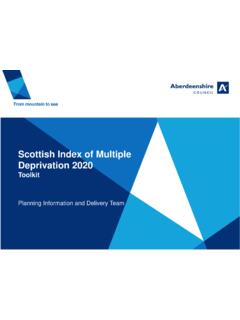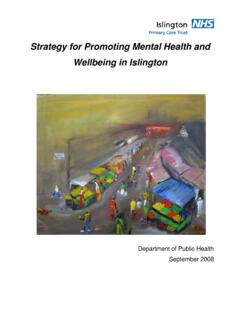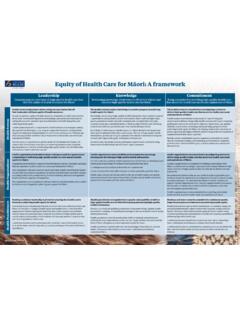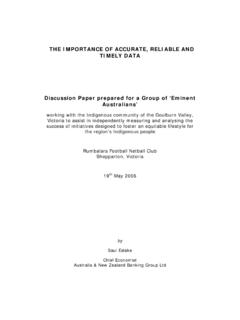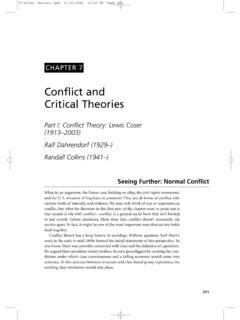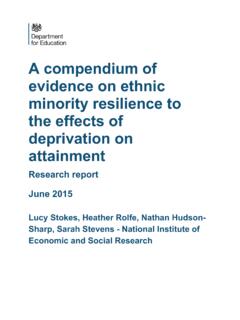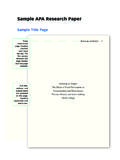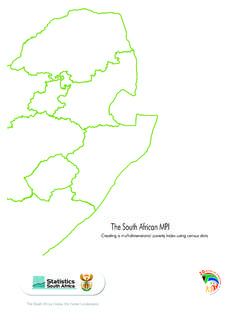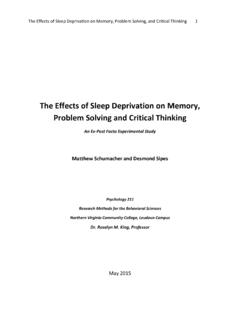Transcription of Fostering Services National Minimum Standards
1 Fostering Services : National Minimum Standards Fostering Services NMS 1 02/03/2011 16:39:55. Fostering Services NMS. GENERAL INTRODUCTION ..3. Values ..3. Legal status of the Standards ..4. Structure and approach to The wider context ..5. Application to Short Breaks ..6. CHILD FOCUSED Standards ..7. STANDARD 1 The child's wishes and feelings and the views of those significant to them ..8. STANDARD 2 Promoting a positive identity, potential and valuing diversity through individualised STANDARD 3 Promoting positive behaviour and relationships ..12. STANDARD 4 Safeguarding Children ..14. STANDARD 5 - Children Missing from Care ..15. STANDARD 6 - Promoting good health and wellbeing ..17. STANDARD 7 - Leisure activities.
2 19. STANDARD 8 - Promoting educational attainment ..20. STANDARD 9 - Promoting and supporting contact ..21. STANDARD 10 - Providing a suitable physical environment for the foster STANDARD 11 - Preparation for a placement ..23. STANDARD 12 Promoting independence and moves to adulthood and leaving Standards OF Fostering SERVICE ..27. STANDARD 13 - Recruiting and assessing foster carers who can meet the needs of looked after children ..28. STANDARD 14 - Fostering panels and the Fostering service's decision- maker ..30. STANDARD 15 Matching the child with a placement that meets their assessed needs ..32. STANDARD 16 - Statement of purpose and children's guide ..33. STANDARD 17 - Fitness to provide or manage the administration of a Fostering service.
3 34. STANDARD 18 Financial viability and changes affecting business continuity ..36. STANDARD 19 Suitability to work with children ..38. STANDARD 20 Learning and development of foster carers ..40. STANDARD 21 - Supervision and support of foster carers ..42. STANDARD 22 - Handling allegations and suspicions of harm ..44. STANDARD 23 Learning, development and qualifications of STANDARD 24 - Staff support and supervision ..49. STANDARD 25 - Managing effectively and efficiently and monitoring the STANDARD 26 Records ..52. STANDARD 27 - Fitness of premises for use as Fostering STANDARD 28 - Payment to carers ..55. STANDARD 29 - Notification of Significant Events ..57. STANDARD 30 Family and friends as foster STANDARD 31 - Placement Plan and GENERAL INTRODUCTION.
4 This document contains the National Minimum Standards (NMS) applicable to the provision of Fostering Services . The NMS, together with Regulations relevant to the placement of children in foster care such as the Fostering Services (England) Regulations 2011 (the 2011 Regulations), form the basis of the regulatory framework under the Care Standards Act 2000 (CSA) for the conduct of Fostering Services . The values statement below explains the important principles which underpin these Standards . Values The child's welfare, safety and needs are at the centre of their care. Children should have an enjoyable childhood, benefiting from excellent parenting and education, enjoying a wide range of opportunities to develop their talents and skills leading to a successful adult life.
5 Children are entitled to grow up in a loving environment that can meet their developmental needs. Every child should have his or her wishes and feelings listened to and taken into account. Each child should be valued as an individual and given personalised support in line with their individual needs and background in order to develop their identity, self confidence and self-worth. The particular needs of disabled children and children with complex needs will be fully recognised and taken into account The significance of contact for looked after children, and of maintaining relationships with birth parents and the wider family, including siblings, half- siblings and grandparents, is recognised, as is the foster carer's role in this.
6 Children in foster care deserve to be treated as a good parent would treat their own children and to have the opportunity for as full an experience of family life and childhood as possible, without unnecessary restrictions. The central importance of the child's relationship with their foster carer should be acknowledged and foster carers should be recognised as core members of the team working with the child. Foster carers have a right to full information about the child. 3. It is essential that foster carers receive relevant support Services and development opportunities in order to provide the best care for children. Genuine partnership between all those involved in Fostering children is essential for the NMS to deliver the best outcomes for children; this includes the Government, local government, other statutory agencies, Fostering service providers and foster carers.
7 Legal status of the Standards The NMS for Fostering Services are issued by the Secretary of State under section 23 of the CSA 2000. The Secretary of State will keep the Standards under review and may publish amended Standards as appropriate. Minimum Standards do not mean standardisation of provision. The Standards are designed to be applicable to the wide variety of different types of Fostering service. They aim to enable, rather than prevent, individual providers to develop their own particular ethos and approach based on evidence that this is the most appropriate way to meet the child's needs. Many providers will aspire to exceed these Standards and develop their service in order to achieve excellence.
8 The Standards are issued for use by Ofsted, who take them into account in the inspection of Fostering Services . They will also be important in other ways. The Standards may be used by providers and staff in self-assessment of their Services ; they provide a basis for the induction and training of staff and carers;. they can be used by parents, children and young people as a guide to what they should expect a Fostering service to provide and to do as a Minimum ; and they can provide guidance on what is required when setting up a Fostering service. The Standards apply to Fostering Services . Where a standard places an expectation on a foster carer, this should be interpreted as an expectation on their Fostering service to support the foster carer to meet the standard.
9 Structure and approach to inspection 1. The National Minimum Standards for Fostering Services focus on delivering achievable outcomes for children. Each standard is preceded by a statement of the outcome to be achieved by the Fostering service provider. The Standards are intended to be qualitative, in that they provide a tool for judging the quality of life experienced by Services users, but they are also designed to be measurable. Services will normally show that they are meeting the headline statement of the outcome by following the Standards below. However, these do not have to be followed exactly if the service can demonstrate, and Ofsted is satisfied, that the outcomes are being met in a different way.
10 The exception is a 1. Ofsted will be providing advice on how the individual Standards fit against the judgements in their inspection framework 4. requirement set out in regulations in which case the requirement must be met. The Standards outline in the legislation box what the statutory requirement is which underpins the Standards . Unless otherwise specified, the legislation referred to in the legislation box is a provision in the 2011 Regulations. Across all its work, Ofsted has three core statutory responsibilities under section 117 of the Education and Inspections Act 2006: to ensure that inspection supports improvement in the Services Ofsted inspects and regulates;. that it is centred on the needs of users; and that it promotes the effective use of resources.










